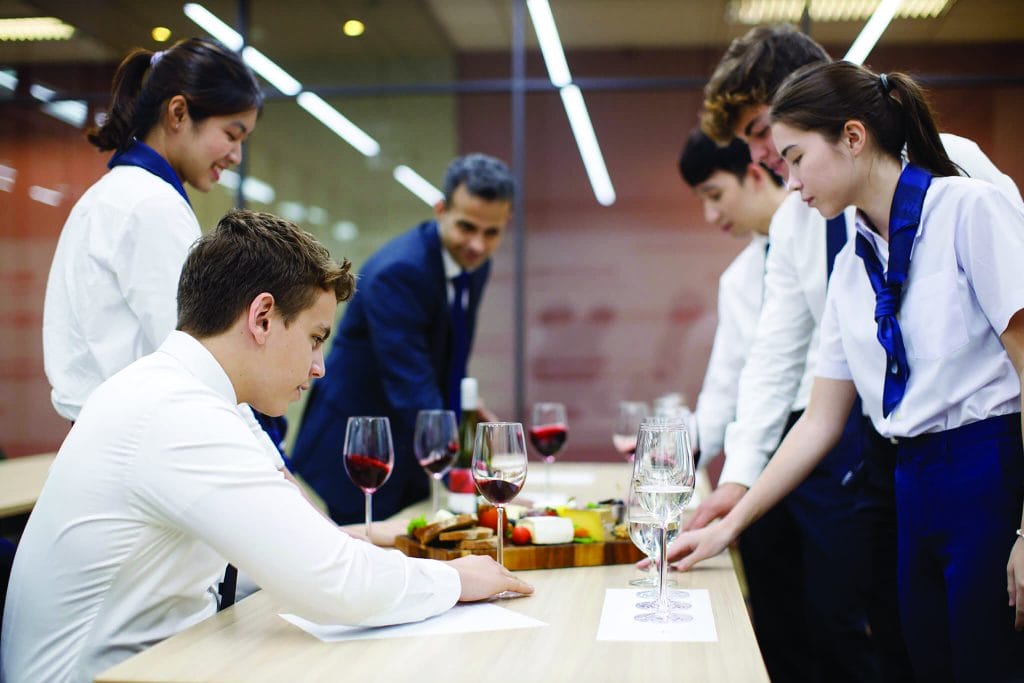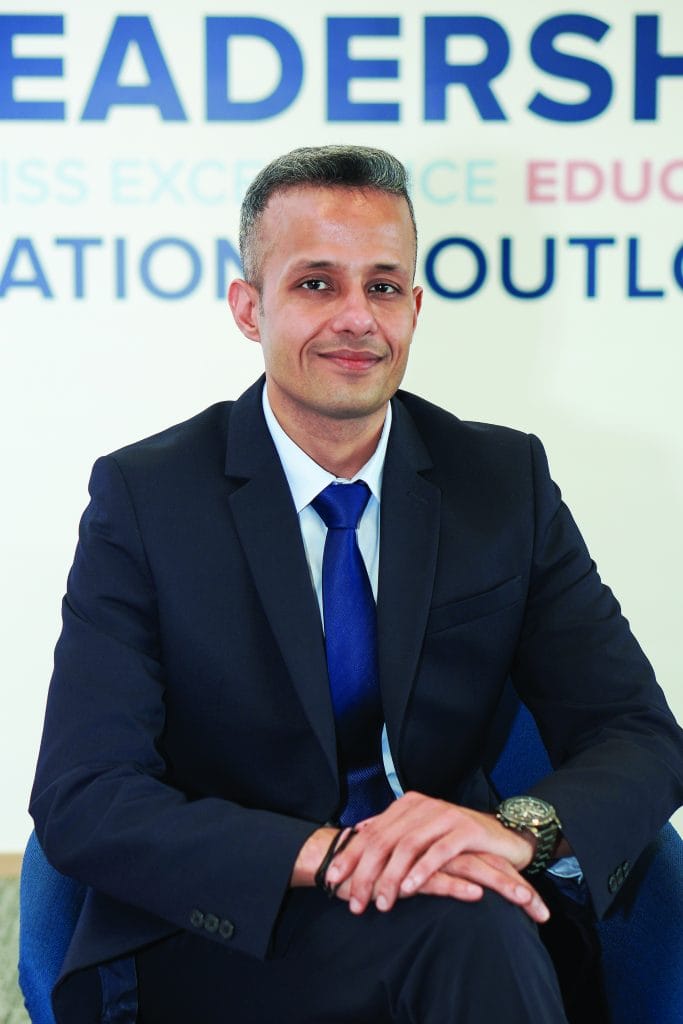Pioneering excellence at every step.
Proudly placing students at the centre of learning, the Asian Institute of Hospitality Management (AIHM) creates a dynamic learning environment that is set to transform hospitality education. Founded by Minor Hotels in academic association with Les Roches, AIHM brings Swiss standards to Bangkok’s riverside, where students are taught through practical experiences and their passion for the industry is fostered.
Strategically stationed in one of the world’s most sought-after travel destinations, AIHM’s Bangkok campus sets the ground for inspiring exchanges between internationally-experienced faculty members and hospitality enthusiasts, where everyone grows together. Through its intensive training modules, immersive course structures, and innovative real-world modelling, the institute is at the frontier of the industry.
Masala sat down with Ishaan Dargan, the practical arts programme leader and lecturer at AIHM, to know more about the approach the institute takes in building the leaders of tomorrow.
AIHM is known for its global approach to hospitality education. How would you describe the Institute’s vision and what it aims to achieve for the hospitality sector?
We use what is called a ‘cognitive approach’ to teaching. This method builds on someone’s existing knowledge to help them learn. The idea is to have a healthy atmosphere that doesn’t just rely on information that is transferred from teachers to students, but allows students to use their own experience and understanding to solve the problems at hand.
The hospitality industry is extremely dynamic. Each situation and each guest is different. As an institution, we can only provide students with tools; but they have to learn how to adapt to each situation as it unfolds. AIHM’s global hospitality management programme fosters agility in students and helps them learn exactly this. We are mindful of the fact that we are building future hoteliers, so we’ve created a culture of thinking to equip these students to change the face of this industry for the better.
Could you take us through the specifics of the programme’s curriculum?
Three and a half years in duration, this Bachelor’s programme is spread across seven semesters. It kicks off with the practical arts semester, which trains students in hotel operations. This is followed by an internship either in Food and Beverage or the Rooms division, which comprises of house-keeping and front office.
During the second semester, students will do their first internship at any hotel around the world. Management subjects start to kick in semester three onwards, and students get an internship opportunity
again in semester five. In this internship, students get to work in functional departments, including the revenue department, sales, and other aspects beyond operations. This helps them understand the business side of things, without being limited to just the service aspect.
The last two semesters are dedicated to creating pathways for students, letting them specialise in their area of interest, be it finance, or entrepreneurship, or operations, amongst others. This aspect is particularly unique to our curriculum since specialisation is otherwise considered to be an attribute of a Master’s programme.
The Practical Arts semester of the course seems to be extremely popular amongst students. How would you say it benefits them?
During the first 20 weeks of being with us, students get to experience different operational departments and work real-time in the two properties surrounding our campus, Anantara Riverside Bangkok Resort and Avani+ Riverside Bangkok Hotel. In other hospitality and hotel management courses, there is a simulation of actual job roles, where students assume characters of guests and service-providers, in make-believe property spaces. The real-world model that we provide is very different as AIHM allows them to be a part of an on-running commercial property. This helps students get exposure to the real world even before they take up a job or an internship. Therefore, when they go for their internships, they are not overwhelmed.
Having students serve as staff on commercial properties can be challenging for the students, whilst being risky for the hotels. How does the Institute navigate that?
It is challenging for sure, but we don’t leave students unsupervised. We have a team of lecturers and practitioners, who understand the pulse of the hospitality industry and are well aware of the plausible
encounters that students may have with guests. They mentor students closely and guide them with dos and don’ts, while also allowing them to be creative.
As a professional, you tend to get so occupied with work and with serving guests that it gets hard to innovate sometimes. Students, on the other hand, have the leverage of a fresh perspective on the norm, and are capable of finding newer, more efficient ways to achieve the same outcome. We truly believe that one person can only start a revolution, but for sustainable change to come about, it is important that everyone joins in. Education is the best way to bring about that kind of transformation.
What are the exchange and transfer possibilities offered with the course?
Our exchange programme allows students to experience the culture and education in Les Roches campuses in Switzerland or Spain during semesters three and four, however students are required to come back for the remaining semesters and they graduate with Ministry of Education-certified AIHM degree. The transfer programme lets them specialise in the Les Roches campus during semesters six and seven, and graduate with a degree from Les Roches.
What are the employment opportunities that open up for students after this degree in hospitality management?
I think there is a popular misconception that people who graduate in hospitality management have to work in a hotel. On the contrary, a degree like this opens up service-related positions in any industry, be it banking or insurance, or any other sector. The MICE industry today is such a massive business which has ample opportunities. At AIHM, we encourage students to think beyond the box of hospitality, and use the service mindset that we carve into them, to open up to the sea of possibilities that are available beyond








